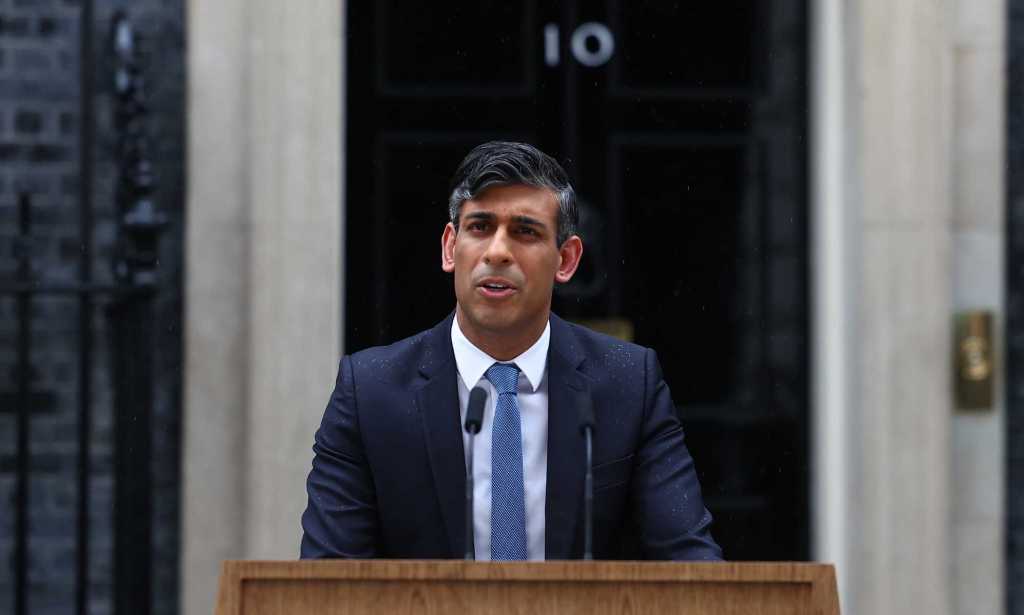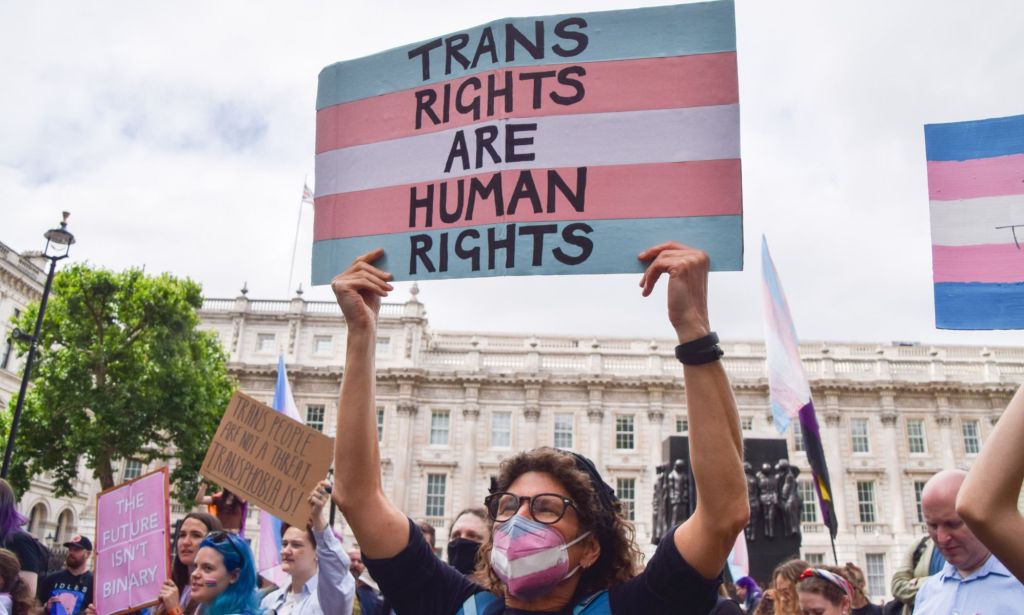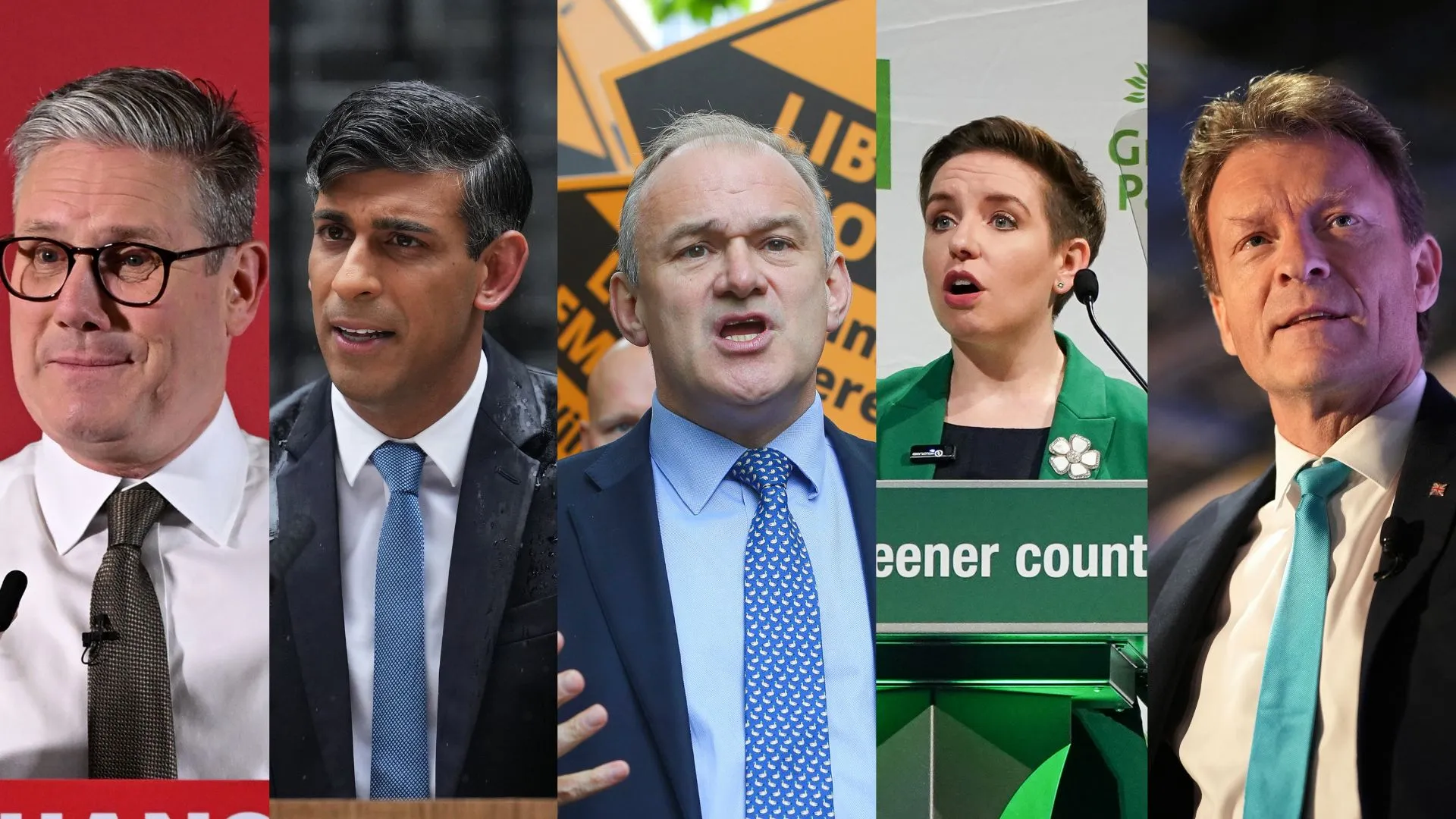Where do UK political parties stand on trans self-ID?
As campaigning for the UK general election hots up, concerns are being raised by the trans community on several key issues, including conversion therapy, self-ID and the rise in the number of hate crimes.
As several countries, including New Zealand, Switzerland and Ireland, have introduced self-ID – allowing trans people to change their sex legally without a medical diagnosis of gender dysphoria – many transgender people have wondered if and when the UK will bring in similar legislation.
So where do the UK political parties stand on self-ID? Here’s what they have said publicly.
Labour Party
One of Keir Starmer’s biggest U-turns since becoming Labour leader has been his stance on self-ID for trans people. During his 2020 leadership campaign, the former director of public prosecutions vowed to stick to the party’s previous manifesto commitment to de-medicalise the process.
He later added that Labour was committed to updating the Gender Recognition Act (GRA) and introducing self-declaration.
“Trans rights are human rights and I support the right to self-identification,” he told PinkNews in 2020.
But little more than three years later, Labour announced it had ruled out a self-ID system, and would keep the need for a gender dysphoria diagnosis in order to obtain a Gender Recognition Certificate (GRC).
This went against the position of Scottish Labour, which had voted to remove the medical diagnosis requirement.
Conservative Party
It wasn’t until 2020 that the Conservative Party officially ruled out self-ID, with former Prime Minister Theresa May having supported “de-medicalising” the process for trans people.
“Being trans is not an illness and it should not be treated as such,” she said at the PinkNews awards dinner in 2017.
The following year, a consultation on reforming the GRA was launched, and received around 100,000 responses. The outcome showed an overwhelming majority of people were in favour of allowing people to self-identify as a man or a woman.
However, in June 2020 it was reported that then-PM Boris Johnson was set to scrap self-ID plans completely.
In January 2023, new prime minister Rishi Sunak blocked legislation passed by the Scottish parliament to introduce self-ID.
Equalities minister Kemi Badenoch has also voiced her opposition, announcing last year that trans foreign nationals from countries that have self-ID, applying for a GRC in Britain, would have to provide medical reports.
“It should not be possible for a person who does not satisfy the criteria for UK legal gender recognition to use the overseas routes to do so,” she said.

Green Party
The Green Party is the most supportive political party when it comes to self-ID. Policy documents say trans people should be “empowered to update their birth certificate and any other official documents, without medical or state encumbrance”.
The party has also vowed, if it wins power, to review the 2004 Gender Recognition Act, the 2010 Equalities Act and the 2013 Marriage (Same Sex Couples) Act because they “contain significant flaws that discriminate against some trans people and thus are not fit for purpose”.
Alongside this, the Greens have promised to remove any legal barriers trans parents face when having their gender properly recognised on their child’s birth certificate, and the “spousal veto”, whereby trans individuals are required to get written permission from their partner for their marriage to continue if they obtain a GRC.
Liberal Democrats
The current stance of the Liberal Democrats on self-ID isn’t obvious, however the party has previously supported the scheme.
In 2019, Jo Swinson, the party’s leader at the time, said she wanted to change the law to automatically recognise non-binary gender identities and to allow people to self-identify without medical evidence.
The Lib Dems also promised to introduce an “X” gender option on passports and extend equality law to cover gender identity and expression.
Earlier this year Scottish Lib Dem MP Christine Jardine told PinkNews the party was committed to reforming the gender recognition process to make it “less bureaucratic and intrusive” and to include non-binary people.

Reform UK
It’s safe to say that the Reform UK doesn’t support self-ID for trans people. The right-wing populist party, known for its anti-immigration stance, hasn’t directly spoken about subject but has campaigned to ban lessons on gender in schools and implement “single-sex” spaces such as public toilets.
“What is hard-right about declaring that there are only two sexes and two genders and wanting to protect children in schools from this trans issue?” party leader Richard Tice asked on TalkTV.
Scottish National Party (SNP)
Self-ID has been a key part of the SNP’s previous manifestos.
During campaigning for the 2016 Scottish Parliament election, which they won, the SNP committed to “review and reform gender recognition law so it’s in line with international best-practice for people who are transgender or intersex”.
The SNP introduced the Gender Recognition Reform Scotland bill in March 2022. It passed through Holyrood by a majority at the end of the year, but was vetoed by the UK government.
Earlier this month, newly elected leader John Swinney formally abandoned former first minister Nicola Sturgeon’s gender self-ID plans, after admitting they could not be implemented.
“The reality of the situation we face is that the Supreme Court said we can’t legislate in that area. We can’t take forward that legislation,” he told Sky News.







